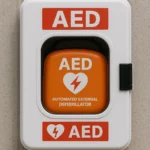
AI Language Support for Enhanced Health Education in India
AI-Powered Language Support
A Game Changer in Health Education
Adapt AI-powered language support technology to healthcare for language purposes, facilitating communication and making essential health content in local Indian languages accessible.
Why It Matters:
- The knowledge of health issues among dissimilar people will gain in popularity.
- Instead of creating a language barrier, everyone can access health services and treatments.
- For Patients: Discussing their treatment plan clearly and compellingly educates the patient about the protected information consents and allows them to make decisions accordingly.
- For Researchers: This aggregation of data in a more precise form while simultaneously creating community engagement.
- For Healthcare Providers: The scope has to be the broadest possible, so the main goal is inclusive care for all people in society!
Historical Context of AI-Powered Language Support in Healthcare
Foundations in the Healthcare Landscape
The AI field and the healthcare environment have undergone a significant transformation. Initially, incorporating artificial intelligence was not realistic, but now, developing educational scenarios in health care is very much possible, especially in areas with different languages.
- Empowerment through Language: Over time, language barriers became less of an issue in the delivery of health education to communities with more than one spoken language.
- Technology Evolution: The tools of technology and the power of simplicity have transferred from simple translation to advanced AI algorithms-driven technology, which has been continuously adapting to cover all kinds of communicative requirements.
Impact on Medicine and Public Health
AI’s impact on the indigenous Indian languages is more than a mere transformation.
- More engagement: Local languages provide a deeper connection and allow the communities to relate to health content.
- Improved health outcomes: Clear understanding gives people the chance to act in a way that will improve their health, directly affecting public health initiatives.
- Using local language in AI technology is about translation and creating interaction, which promotes healthcare literacy.
Current Landscape of AI-Powered Language Support in Healthcare
Transforming Health Education
AI has been changing the course of health education, particularly in a multicultural language environment such as India. This is what’s happening now:
- Accessibility: AI facilitates communication between complex healthcare information and the masses by translating it into local dialects.
- Engagement: User-friendly e-learning modules promote comprehension among those with diverse literacy levels.
- Cost-Effectiveness: The technology is a cost-effective solution to manual translation that also saves resources.
- Key Insights:
- Collecting data Townwise: More than 70% of Indian users prefer health content in their native language.
- AI-driven technology through which companies allow the translation of documents in only a couple of seconds, enabling the broader public to have access to knowledge.
- The need to invest in multilingual health policies is no longer a choice. It is a must.
Impact on Patients and Families
With AI-Powered Language Support, health information is more easily accessible to people from different communities. Patients and families can be educated using local Indian languages, which makes great strides in defeating language barriers and bringing about mutual understanding.
Benefits of Language Accessibility
- Increased Understanding: Such an approach improves patient understanding and adherence to treatment regimens.
- Enhanced Communication: This will allow families to cooperate engagingly and boost social cohesion.
Quality of Life Improvements
- Timely Treatments: Patients can be mobile but can still make decisions more quickly and stay healthy using local platforms.
- Empowerment: Clients are comfortable expressing their opinions, so their voices should be considered in the context of their treatments.
- Together, AI is a helpful technology in this respect and a major contributor to a healthier life.
The Impact of AI-Powered Language Support on Healthcare Professionals
AI is beginning to revolutionize healthcare through its language support technology.
Challenges Faced
- Training Issues: Doctors, nurses, and other staff members must continue attending seminars and workshops to acquire the necessary capabilities to apply the tools.
- Cost Concerns: Physicians, other healthcare professionals, and managers should be cautious about excessive spending on acquiring AI tools, especially in settings with limited budgets.
- Implementation Barriers: Modifying existing systems and workflows to integrate new technologies has been a vital starting point for overcoming this obstacle.
Opportunities for Improvement
- Better Resource Management: AI can help automate the work, so the healthcare workers will have more time to care for the patients.
- Enhanced Patient Care: Patients can reach the doctors and nurses in the local clinic in their language, which can clarify communication and help them understand the issues quickly.
- The bottom line? The change is simple – AI already has
- Improved the interaction between patients and healthcare professionals. The results are better outcomes. However, if handled constructively, introducing AI technologies can benefit all stakeholders and be considered the safest way to pursue different medical procedures.
Key Benefits of AI-Powered Language Support in Healthcare
Bridging Communication Gaps
AI-powered language solutions in health are reshaping language education by making them available digitally and in native Indian languages. This builds common comprehension among the different communities.
Enhanced Efficiency
- Information dissemination is made easier: Healthcare professionals can communicate by expressing information.
- Avoided conflicts: In the meantime, conflicts are minimized by the transparent transmission of messages.
Improved Patient Outcomes
- Analysis of patient education result -> The study revealed that partnering with a local bookstore to bring health workshops and promote literature contests would best fit the new local computer program{@A – Informed patients lead to better health choices}}: Localized information deserves a word of encouragement for those that are injured.
- Enhanced participation percentages: Most patients are more active in their therapies.
- AI applications in medicine are currently fashionable and necessary for a healthier tomorrow!
Challenges and Ethical Concerns in AI-Powered Language Support
Patient Perspectives
- Access vs. Accuracy: Patients might misunderstand realistic facts because of bad interpretations. This is a return back to the beginning.
- Cultural awareness: While not all their translations capture local sensations, they are likely to misunderstand or provoke people’s feelings.
Researcher Considerations
- Biases in Algorithms: Artificial intelligence tools regularly reproduce long-standing prejudices, distributing health information differently.
- Data Quality: The reliability of the results rests on the purity of the data—low-quality data, such as poor health knowledge.
Regulatory Issues
- Lack of Oversight: The rapid growth of technology is the central missing part of the regulation and will disseminate false facts.
- Privacy Concerns: Using patient records for private treatment brings new patient confidentiality issues.
- Consequently, although the potential exists, the impediments are considerable and cannot be disregarded.
AI-Powered Language Support: Enhancing Health Education
Making Health Information Accessible
The issue of language as a barrier need not arise in the modern multicultural society. Below are some guidelines on the utilization of AI to facilitate the health education of the local Indian language people:
- Utilize AI-Driven Apps: Take advantage of platforms that support multiple languages. Look for apps that provide health information in your language and your native language.
- Schedule Interactive Sessions: You can opt for online live meetings, during which healthcare professionals can fluently communicate with the locals in their dialect.
- Engage Through Social Media: You can exchange health-related information with your audience through videos, pictures, or posts in your regional language. Engage them on the platforms they are using!
- Encourage Community Feedback: Create a dialogue in community forums. This approach ensures that the content appeals to the regional audience and meets their needs.
- See to it that misinterpretation will not hinder your health journey!
Future Trajectory of AI in Health Education
Breakthroughs on the Horizon
AI-driven language services facilitate communication and transform health education. Imagine a scenario where life-saving health knowledge arrives seamlessly in the local languages of India.
- Improved understanding: The people at the heart of the communities are always connected with the aid of culturally matched materials.
- Increased access: [In-Progress] Using the last mile mechanism to bring e-books and educational materials to students in remote areas.
Emerging Technologies
Artificial intelligence will modernize the delivery system of healthcare and health information.
- Think: Virtual health promoter talking in the language you understand.
- Consider: Interactive augmentations that can adjust to local dialects.
Career Opportunities
Biotech and health sectors will be the ones with the most flourishing market demand:
- Vacancies in AI engineering, wherein standardized language comprehension stays the focus.
- Job posts for health educators who can effortlessly link tech and natural languages.
- It’s more than just technology; it’s about creating a healthier future for everyone.
Key Takeaways in Healthcare: AI-Powered Language Support
Stay Informed
The instances in which one navigates today’s healthcare atmosphere are undoubtedly challenging. The following are the reasons for this:
- Empower Yourself: Using your language, understanding communication will be enhanced.
- Accessibility Matters: Local languages act as intermediaries, allowing people to get health education regardless of their lifestyle.
Embrace the Change
The adoption of AI-driven products can encourage health education in innumerable communities due to the following factors:
- Widen Your Reach: Information in local dialects encourages inclusivity.
- Health Outcomes Improve: Compliance with medical directions increases as the patient understands the course of the treatment more clearly.
- Engage Today: Choosing the most appropriate service begins the process of healing. Schedule a meeting with your doctor or read more about AI in health education!












Post Comment